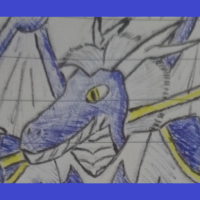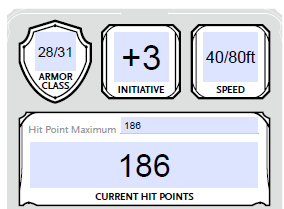This may sound strange, but honestly once you understand the game it’s really the other way around!
The official 5e devs do NOT have any clue what they’re doing in terms of encounter balance and design; almost everything gets crapped on by a good spellcaster or Ranger, and they play it pretty safe and corporate with stories too. Half of 5e adventures are copies of old adventures and it really shows because all the copies of old classics are actually way more respected and generally liked (Curse of Strahd, Sunless Citadel, White Plume Mountain) than 5e originals (Dragonlance: Shadow of the Dragon Queen). Notable exception being Dragons of Stormwreck Isle. Despite being the smallest original adventure in 5e it’s honestly good.
Still, I really appreciate the meme for our community! You’re the backbone of lemmy with all your posts my guy





“Roll a death save.”
“No.”
“…No? You can’t just not do that?”
“I don’t care.”
“That doesn’t make any sense!”
“Too bad.” Gets back up with 50% HP